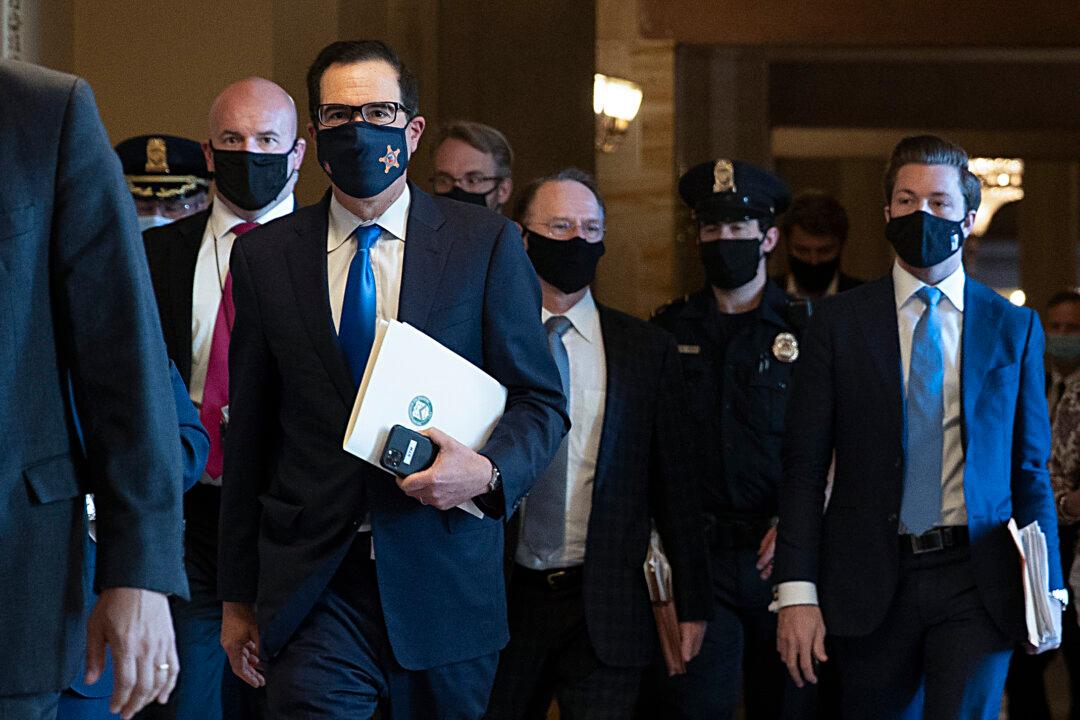U.S. House Speaker Nancy Pelosi (D-Calif.) and Treasury Secretary Steven Mnuchin remained far from agreement on COVID-19 relief in key areas on Oct. 1, after they failed in a phone discussion to bridge what Pelosi described as differences over dollars and values.
Congressional Democrats led by Pelosi have proposed a $2.2 trillion package to respond to a pandemic that has killed more than 207,000 Americans and thrown millions out of work.





